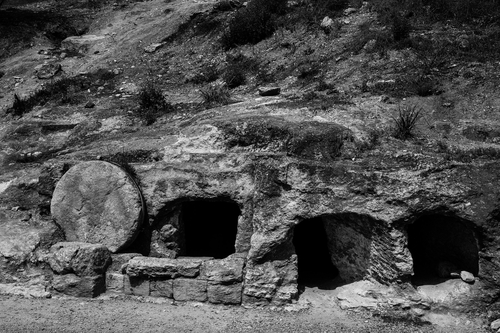
John Flavel was an English
preacher during the 17th century. On one Sunday he preached a sermon
from 1 Cor. 16:22, “If any man does not love the Lord Jesus Christ, let him be
accursed.” Flavel gave his sermon, had an invitation and no one responded. But,
that’s not the end of the story.
Sitting in the
congregation that day was 15-year old boy named, Luke Short. He heard the
preacher’s message, but it had no effect at the time. He grew up, immigrated to
America and spent the rest of his life as a farmer in Virginia. When he was
100-years-old he still had strength to walk across his farm. His mind was still
sharp as a tack.
One day in his centennial
year, as he sat resting under a shade tree, he reflected on that day as a
teenager hearing John Flavel’s message. Though Flavel had been dead many years
he could still hear the preacher ringing in his ears. Mr. Short fell under
conviction and gave his life to Christ there under that tree—because of a
message preached 85 years ago!
It is said that Luke Short
lived to be 116 years old and on his headstone were carved these words: “Here
lies the body of Luke Short, Aged according to nature 116 years, Aged according
to grace 16 years.”[i]

John Flavel (1630-1691)
The amazing lesson I take
from that conversion story is that the fruit of your influence doesn’t have to
stop at the grave. Flavel’s sermon was planted in the heart of Luke Short as a
boy, but it took decades to sprout into faith. Yet, Flavel’s influence stretched
out beyond his death.
There’s an amazing scene
from the life of Elisha that relates. Elisha was one of Israel’s greatest
prophets. In fact, he performed twice the number of miracles as his mentor,
Elijah. But, while Elijah was able to “cheat” death because God took him
directly to heaven in a chariot of fire, Elisha was not. He got old, frail,
sickly and eventually died. However, that wasn’t the end of his legacy. In 2
Kings 13:20-21 we read that the body of a dead man was hastily buried and as the
corpse came into contact with Elisha’s bones, an unbelievable thing happened, “and
when the man was let down, and touched the bones of Elisha, he revived, and
stood up on his feet.”
Incredible! The power and
anointing of God that was upon Elisha’s bones carried over even beyond the grave.
The man raised back to life would be a walking billboard testifying not only to
the miracle-working power of God, but as a legacy statement of Elisha’s
ministry. This should inspire us to live a life of faith such that we leave
behind a spiritual legacy that will continue to impact others even though we’ve
gone on to be with the Lord.
As far as I know, besides
Jesus, this is the only example of a posthumous miracle in the Bible.
Interestingly, Elisha’s life points to Christ in a surprising way. As an OT
type, Elisha prefigured what Christ would later do—bringing new life from a
tomb. Just as the Israelites fled from Elisha’s grave in fear, so too the
disciples fled from Jesus’ empty tomb in amazement.
As prophets go, Elisha was
one of the best and greatest, but even his ministry was unable to halt Israel’s
descent into sin and idolatry. Israel needed someone greater than Elisha, a prophet
who could give life on both sides of the grave, a prophet for whom the grave
was not a final resting place. That ultimate fulfillment came in Jesus. The
Good News is when we invest our lives in Christ, death is not the end of our
life or our influence. -DM
No comments:
Post a Comment